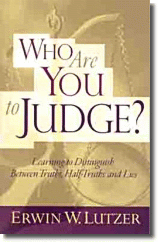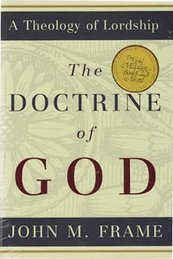 1) Understanding of Dao (the Word) (continued ...)
1) Understanding of Dao (the Word) (continued ...)The Dao is beneath abstraction. As the totality of all things, Lao Zi describes the dao as indescribably great (Dao De Jing, Chapter 25):
I don't know his name,
as it's designation I call it Dào;
forced to provide it a name, I call it "great".
When we can comprehend the dao in all things, we come to know the de. (德,是“道”的物化,是“道”显现于物的功能。) De is how the dao operates in the world. De is the characteristic of the dao from the ethical point of view, but it is different from the de of Confucianism. In Daoism, de refers to the particular thing that is the source of its own potentiality, a thing that operates within the context of dao. In Confucianism, de is somewhat equivalent to what we call moral, which means “behaving in ways considered by most people to be correct and honest”. It is often translated as ‘virtue’, but it not virtue in the sense of Western morality, since the emphasis of the latter is often mainly on the individual.
As said earlier, dao can be taken as a metaphysical concept, but this was not Lao Zi's main concern. He sees the dao as a moral concept. With de("virtue", 德),the dao represents the ordering principle behind nature, society and the individual. It is the nameless unchanging essence and source of heaven and nature. Though the Dào of John’s gospel is unchanging, it is not a nameless essence. The Dào of the bible also has many names and it is not an essence. In the Old Testament, God is also called ELOHIM, EL SHADDAI, ADONAI, JEHOVAH, JEHOVAH-JIREH, JEHOVAH-ROPHE, JEHOVAH-NISSI, JEHOVAH-M'KADDESH, JEHOVAH-SHALOM, JEHOVAH-ROHI, JEHOVAH-SHAMMAH, EL ROI and so on. In the NT, God is also called THEOS, HUPSISTOS, and yes… our most familiar WORD (logos; John 1:1ff) and JESUS. Why does God have so many names? In Scripture, the Names of God has their significance, the names of God are like miniature portraits and promises. God's Names reveal God's identity, constitution, nature, character and essence. Though both Lao Zi and Zuang Zi are right in recognizing Dào as the beginning of all things, they have failed to see Dào as a divine being. For eg, some scientists claim that the Big Bang produced the universe, but the the Big Bang is not a being, but a happening (that’s what I think! It may be wrong though!). In a way, Lao Zi and Zuang Zi’s thoughts reflect the agnostic nature of the philosophical thought of China, or should I say their writings influenced of the philosophical thought of China.
2) Dao's characteristics
How does the bible describes Dao? In John 1:1(NIV), “In the beginning was the Word, and the Word was with God.” This verse shows that there is the Word and God.The Word and God are different as he was “with God”. The Word and God are the same as he “was God”, and “was with God in the beginning” (v.2). As Jesus in his High Priestly Prayer said, “Now, Father, glorify Me together with Yourself, with the glory which I had with You before the world was. (John 17:5) Jesus as the Word Incarnate enjoys an eternal relationship with the God the Father. We know that “love is from God; and everyone who loves is born of God and knows God. The one who does not love does not know God, for God is love.” (1 John 4:7-8). (See my previous reflection on Human & divine love!) For “God is love”, there must be someone who loves and someone to receive the love. The eternal relationship that God the Father and Jesus enjoy is this relationship of love. God exists as three-in-one and one-in-three in the ineffable exchange of love among the three persons of the Trinity.
In the first chapter of Dao De Jing, Lao Zi wrote:
The Way that can be experienced is not true;
The world that can be constructed is not true.
The Way manifests all that happens and may happen;
The world represents all that exists and may exist.
These are the first words of Dao De Jing. The Dao De Jing does not specifically define what the Tao is. Laozi himself reportedly said, "My words are very easy to understand [...] yet no one under heaven understands them." (chapter 70) However, we can point to some of the Tao's characteristics. Here, Lao Zi say that Dao (or “The Way”) is something extraordinary. It cannot be constructed.
In the fourth chapter of Dao De Jing, Lao Zi wrote:
These are the first words of Dao De Jing. The Dao De Jing does not specifically define what the Tao is. Laozi himself reportedly said, "My words are very easy to understand [...] yet no one under heaven understands them." (chapter 70) However, we can point to some of the Tao's characteristics. Here, Lao Zi say that Dao (or “The Way”) is something extraordinary. It cannot be constructed.
In the fourth chapter of Dao De Jing, Lao Zi wrote:
The Way is a limitless vessel;
Used by the self, it is not filled by the world;It cannot be cut, knotted, dimmed or stilled;
Its depths are hidden, ubiquitous and eternal;
I don't know where it comes from;
It comes before nature.
The Original Chinese Version is:
道冲而用之,或不盈。
渊兮,似万物之宗。湛兮,似或存。
吾不知谁之子,象帝之先。
渊兮,似万物之宗。湛兮,似或存。
吾不知谁之子,象帝之先。
The last sentence of this chapter “吾不知谁之子,象帝之先” is uniquely written. However, the translation “I don't know where it comes from; It comes before nature.”isn’t very clear. I think another English translation which I found says it better: Was it too the child of something else? We cannot tell.But as a substanceless image it existed before the Ancestor.
Lao Zi says that the Way is a child, but he wasn’t able to say who it is? The “Ancestor” described by Lao Zi maybe the “Yellow Ancestor” (皇帝). Lao Zi describes it as existing before the first king of China. So, the question is: Is this “The Way” the God of the Bible? Maybe the bible can shed some light on this. About two to three hundred years before Lao Zi, the prophet Isaiah has already prophesized:
For to us a child is born,
to us a son is given, and the government will be on his shoulders.
And he will be called
Wonderful Counselor, Mighty God,
Everlasting Father, Prince of Peace. (Isaiah 9:6)
Isaiah said Jesus is the child that will be born, and he is the Prince of Peace. Isn’t this rather similar to Lao Zi’s portrayal of “The Way” as a child? Lao Zi’s description of “The Way” as eternal also matches Isaiah description of Jesus as “Everlasting”. However, Lao Zi’s understanding of “The Way” as “substanceless image” is against the biblical teaching. This is close to the Docetism’s view (a heresy) that Jesus only appear to be man. But the biblical teaching is that Jesus has full humanity. If it is a substanceless image, how could Jesus have died and have a bodily resurrection (Matthew 28:6)? Jesus needs to have full humanity so as to be the mediator btw God and Man (cf. 1 Tim 2:5).
Lao Zi’s view that “The Way” is ubiquitous is also problematic. “Ubiquitous” means “seeming to be in all places”, but we know that God is omnipresent; He cannot be limited by space as He created space. For Jesus, this view that He is ubiquitous is also problematic. With full humanity, Jesus is “limited” by space. So, to describe Him as being ubiquitous would be inappropriate. Wayne Grudem commented, “The divine doctrine of omnipresence is not directly affirmed to be true of Jesus during his earthly ministry” (Bible Doctrine, p. 239).
In Lao Zi’s writing, I think God has somehow miraculously revealed Himself. Thus, Christianity may not be an “ang-moh’s”(Westerner's) religion after all. The Chinese had the concept, or rather the knowledge, of “The Way” in their ancient writing (about 600 BCE).
The “Word (道)” described by John is Jesus. The word “知道” (understand) is an interesting word. We always say “知道” , “知道” , but I think it is not until we know Christ as our Saviour that we finally “知道”, that we finally understand, for Jesus is the only “道” can bring us into eternity with God.
Isaiah said Jesus is the child that will be born, and he is the Prince of Peace. Isn’t this rather similar to Lao Zi’s portrayal of “The Way” as a child? Lao Zi’s description of “The Way” as eternal also matches Isaiah description of Jesus as “Everlasting”. However, Lao Zi’s understanding of “The Way” as “substanceless image” is against the biblical teaching. This is close to the Docetism’s view (a heresy) that Jesus only appear to be man. But the biblical teaching is that Jesus has full humanity. If it is a substanceless image, how could Jesus have died and have a bodily resurrection (Matthew 28:6)? Jesus needs to have full humanity so as to be the mediator btw God and Man (cf. 1 Tim 2:5).
Lao Zi’s view that “The Way” is ubiquitous is also problematic. “Ubiquitous” means “seeming to be in all places”, but we know that God is omnipresent; He cannot be limited by space as He created space. For Jesus, this view that He is ubiquitous is also problematic. With full humanity, Jesus is “limited” by space. So, to describe Him as being ubiquitous would be inappropriate. Wayne Grudem commented, “The divine doctrine of omnipresence is not directly affirmed to be true of Jesus during his earthly ministry” (Bible Doctrine, p. 239).
In Lao Zi’s writing, I think God has somehow miraculously revealed Himself. Thus, Christianity may not be an “ang-moh’s”(Westerner's) religion after all. The Chinese had the concept, or rather the knowledge, of “The Way” in their ancient writing (about 600 BCE).
The “Word (道)” described by John is Jesus. The word “知道” (understand) is an interesting word. We always say “知道” , “知道” , but I think it is not until we know Christ as our Saviour that we finally “知道”, that we finally understand, for Jesus is the only “道” can bring us into eternity with God.



No comments:
Post a Comment